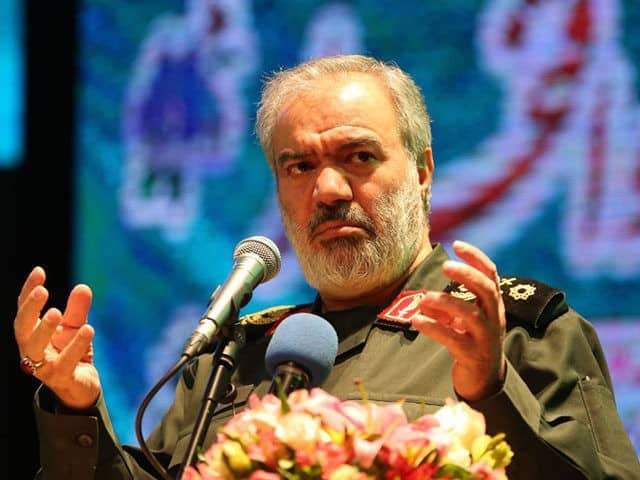Iran Claims ‘Satellite-Controlled Machine Gun’ Killed Top Nuclear Scientist

Rear Admiral Ali Fadavi, deputy commander of Iran’s Islamic Revolutionary Guard Corps (IRGC), claimed in a state media interview on Sunday that nuclear scientist Mohsen Fakhrizadeh was assassinated on November 27 by a “satellite-controlled machine gun” that utilized an “advanced camera and artificial intelligence.”
Iranian government and media sources previously claimed Fakhrizadeh was killed by a team of “terrorists” armed with Israeli weapons after a fierce gun battle with his bodyguards. Fadavi contradicted these reports by saying there were “no terrorists on the scene.”
Instead, Fadavi said a machine gun mounted on a Nissan pickup truck and controlled over the Internet “focused only on martyr Fakhrizadeh’s face in a way that his wife, despite being only 25 centimetres away, was not shot.”
Fadavi added that a member of the security team was injured while attempting to shield Fakhrizadeh from the 13 shots fired by the remote-controlled gun.
One of the eyewitness accounts of Fakhrizadeh’s death published by Iranian media claimed a Nissan truck was involved in the attack and exploded during the firefight. According to this witness, a number of human assailants were also involved and “three to four individuals” were killed during the battle.
At least one other Iranian official, Supreme National Security Council secretary Ali Shamkhani, has said the attack was “a very complicated operation carried out by using electronic devices” and no human assailants were present at the scene. Several officials have accused Israel and the Iranian opposition of killing Fakhrizadeh.
An Israeli newspaper called Yedioth Ahronoth reported on Sunday that Fakhrizadeh was recorded in 2008 claiming he had been asked to build “five warheads” by the Iranian government.
This “top secret” recording was said to have been provided to the Bush administration by former Israeli Prime Minister Ehud Olmert to convince the U.S. government that Iran’s covert program to build nuclear weapons was making dangerous progress. Israeli intelligence believes Iran’s nuclear weapons program was still moving forward under Fakhrizadeh’s supervision despite the deal with Iran made by Bush’s successor, President Barack Obama.
Photo: ATTA KENARE/AFP via Getty Images
Link: https://www.breitbart.com/national-security/2020/12/07/iran-claims-satellite-controlled-machine-gun-killed-top-nuclear-scientist/




